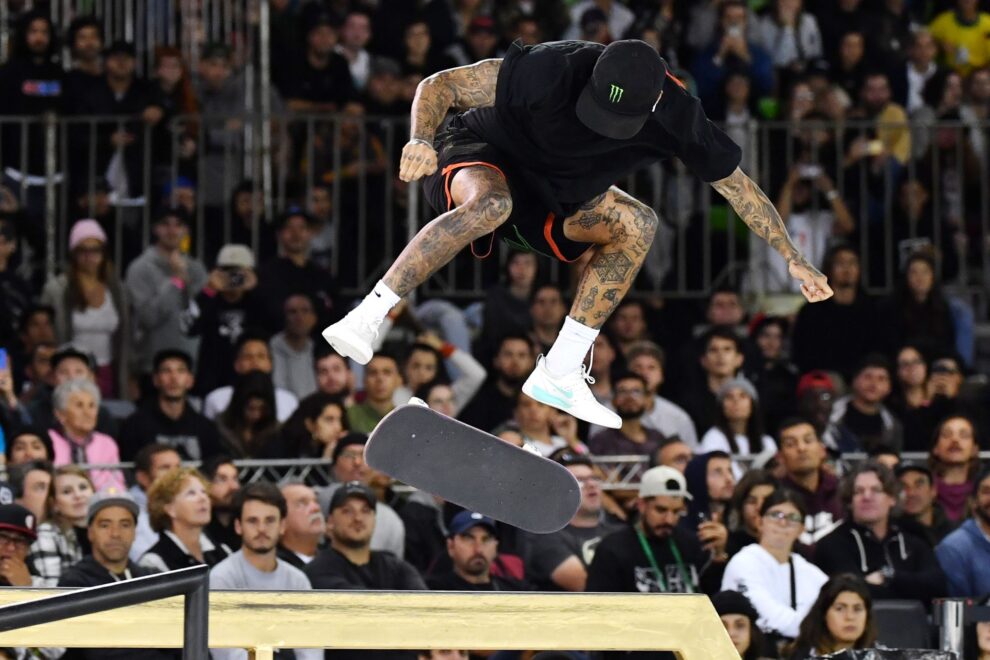Bloomberg
Hezbollah and Israel’s Richest Were Both Welcome at a Congo Bank
(Bloomberg) — 2018 was a good year for Afriland First Group SA, a Switzerland-based company that oversees a network of banks across Africa.In his opening comments to the annual report for the year, Paul Fokam, the group’s chairman and one of Cameroon’s wealthiest men, highlighted the “challenge of being ethical and compliant while creating value.” He asked readers to bear in mind that “we are in a battlefield where only alertness, flexibility, and perseverance can ensure sustainable victory.”Little mention was made in the report’s 83 pages of one of the group’s star performers though, its unit in the Democratic Republic of Congo, a vast central African nation rich in natural resources including diamonds, cobalt and copper. While deposits across Afriland’s subsidiaries increased 17%, a PwC audit seen by Bloomberg shows that in Congo, accounts swelled nearly fivefold that year to $279 million, accounting for more than one-tenth of the group’s total at the time.The influx transformed the bank, and would go on to wreck the lives of two employees who provided information to anti-graft organizations in Europe about where the cash was coming from. Gradi Koko Lobanga, the former head of the unit’s internal audit division, and Navy Malela Mawani, its comptroller, have since decided to go public with the allegations to combat claims they fabricated the data. Both have fled Congo and sought asylum in Europe.New files the two men shared with the Paris-based Platform for the Protection of African Whistleblowers, known as Pplaaf, and several media outlets including Bloomberg, suggest Afriland Congo had carved out a niche for itself in doing business with risky clientele, including Israeli billionaire Dan Gertler. The documents cover banking operations at Afriland between late 2017 and early 2019, and show at least seven sanctioned individuals and companies had accounts at the bank, although some with small amounts of money in them.Afriland Congo, its sister bank in Cameroon and its parent company in Switzerland didn’t respond to repeated requests for comment.There were accounts held by a firm the U.S. government said it believed to be a subsidiary of a sanctioned company linked to a financier of Lebanon’s Hezbollah, which the U.S. considers a terrorist organization, and another that it blacklisted for the same reason in December 2019.Hezbollah’s media office didn’t answer two calls seeking comment on the group’s activities in Congo.North KoreaOther accounts were linked to a North Korean-owned statue-builder. Concerns that North Korea was using statue-building companies to help fund its weapons programs led the United Nations, U.S. and European Union to target the practice.The UN panel of experts on North Korea recommended this month that the Security Council sanction the Congolese company’s two owners, Pak Hwa Song and Hwang Kil Su, according to excerpts of the report shared with Bloomberg. An email and phone call to their company, Congo Aconde SARL, went unanswered.Still other records show large amounts of money transiting through the personal accounts of Congolese politicians.But the largest by far were the accounts seemingly linked to Gertler, one of Israel’s richest men, a burly billionaire in his mid-40s with a history of controversy in Congo. In December of 2017, the U.S. had sanctioned Gertler for alleged corruption in mining and oil deals. The Treasury Department accused him of acting as a middleman between multinational corporations and the state and of setting up companies on behalf of former Congolese President Joseph Kabila, all of which Gertler denies.A year after he was sanctioned, deposits by companies and individuals connected to Gertler grew to more than a third of total deposits at Afriland Congo, according to a PwC audit.“It was quite curious that a person who was just sanctioned by the United States started coming to the bank,” said Koko, one of the whistleblowers, in an interview at a lawyer’s office in Paris last week.Three emails since Feb. 22 to Afriland units in Cameroon and Congo, its Swiss headquarters as well as to the chief executive officer and deputy chief executive of Afriland Congo, have gone unanswered. The spokesman for Afriland Cameroon didn’t answer when called by Bloomberg.A person who picked up the phone at the Swiss parent company on Friday said the email address wasn’t working and asked Bloomberg to send a letter. He declined to provide any other contact information for Fokam, the group’s chairman.The Congo unit previously told Global Witness and Pplaaf that it hasn’t violated any regulations or assisted any of its customers in circumventing U.S. sanctions.First BonusesTransaction fees at Afriland soared with the new business in 2018, said Malela, the former comptroller, who began working at the bank 12 years ago. “We were never given bonuses at the end of the year” until then, he said.By that time, Koko had already sought refuge in Europe. As internal auditor, he had oversight of all the bank’s accounts and says he recognized the risks Afriland was taking. Two months after Gertler was sanctioned, Koko wrote a letter warning the Congolese subsidiary’s directors that servicing accounts for companies connected to Gertler as well others linked to Zoe Kabila, the then-president’s brother, could result in penalties or sanctions for the bank.“These irregularities are likely to expose the bank to non-compliance from both a national and international point of view,” Koko wrote. He recommended the bank block all accounts linked to the two men and report them to the relevant authorities. Zoe Kabila did not respond to four emails requesting comment.The reaction of Afriland officials to Koko’s concerns was swift, but not in the way he’d intended. Instead of investigating the accounts, he said one of the bank’s directors intimidated him.Violent Threats“He said to me, ‘These people aren’t just anyone,’ and that they could shoot me while I was leaving the bank,” Koko said. The threats then turned violent, he says, declining to give further details.In a statement provided by a Gertler spokesman on Friday in response to the latest allegations, Gertler said the claims about him were “entirely false.” He said the two bank employees were “victims” of “appalling conduct” by the anti-graft organizations, saying they’d been co-opted into illegal acts including stealing confidential bank data about him, and falsifying documents.“They are unable to return to their homeland, their lives having been destroyed by the reckless decision-making of Global Witness and Pplaaf,” Gertler said of the whistleblowers.The bankers’ earlier revelations were published by Bloomberg in July alongside a report by Global Witness and Pplaaf. That report outlined a network of individuals and companies who appeared to be using Afriland to move money on behalf of Gertler. Gertler denied any wrongdoing and contests the notion he was evading sanctions, some of which were recently eased. Lawyers for Afriland say that Koko and Malela stole and falsified data from the bank.Death PenaltyAfriland identified Koko and Malela after the initial report in July and filed a criminal complaint against them in Congo’s capital, Kinshasa.A lawyer for Afriland, Eric Moutet, said on Thursday that a court last year found the two men guilty of theft, forgery, and violating bank secrecy. It also convicted them of criminal association, a charge that can carry the death penalty. The Paris-based lawyer said the judges gave the harshest sentence possible because the defendants didn’t appear in court.The decision would set “a deplorable precedent” that would deter future whistleblowers, Nick Elebe, a lawyer and Congo director for the Open Society Initiative for Southern Africa, said Friday. Congolese courts should investigate the allegations, which if confirmed, “could undermine the entire banking system, while at the same time posing risks to both the country’s economy and public savings,” he said.Although the death penalty is still on Congo’s statute books, no executions have been carried out in the country since 2003.When Koko fled, Malela decided to stay behind, copying more documents and sending them to his former colleague in Europe. Eventually, he too left the country before Pplaaf and Global Witness published their joint report last year. Koko received asylum in Europe in 2019, while Malela’s application is still pending.Representatives of Gertler and one person mentioned in the Global Witness and Pplaaf report say they’ve sued the two organizations for defamation. Global Witness and Pplaaf said they haven’t seen copies of the lawsuits.“We deny these allegations, and we stand with our sources and our investigation,” the two organizations said on Friday.Sanctions ReprieveAfriland also filed a complaint against both organizations at a court in Paris in early July, the day before the report was published. Global Witness and Pplaaf said in their report that they couldn’t prove that the bank’s network of individuals and companies was used to evade U.S. sanctions and it doesn’t allege any criminal behavior.On Jan. 15, in the final days of the Trump administration, the U.S. Treasury Department eased sanctions on Gertler and his companies through January 2022 without explanation. Bloomberg has reported that the Biden administration is likely to reverse that decision. Gertler said in an emailed statement that the reprieve was based on his commitment “to comply with the terms and conditions” set by Treasury’s Office of Foreign Assets Control.Both Malela and Koko want to stay in banking and say they know of other potential whistleblowers in Congolese banks.“The things that we’re denouncing are more important than the fear we may have,” Koko said. “So we’ll keep condemning these actions that go against the public interest despite the fear.”For more articles like this, please visit us at bloomberg.comSubscribe now to stay ahead with the most trusted business news source.©2021 Bloomberg L.P.











